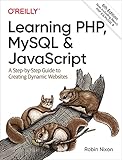Free Custom WordPress WP Query Generator And Loop Builder
This free tool will help you generate a custom WP Query for displaying specific posts based on the arguments you define. It will also build the loop to display your results. It can be a simple query that is filtered to display posts in a specific category, by tags, etc. Or create a complex wp_query by filtering to display posts that contain specific terms within a taxonomy or the results of a custom field.
Keyword Search
Limit results to posts containing this keywordTooltip text
Post Type
any, post, page, my_custom_post_type
Post Status
publish, pending, draft, auto-draft, future, private, inherit, trash, any
Author
Show posts only by a specific author or authors using author ID. or comma-separated list of IDs.
Author Name
Show posts only for a specific author, using the author's "user_nicename".
Category
Show posts only for a specific category or categories. Enter category ID, or comma-separated list of IDs.
Category Name
Show posts only for a specific category, using the category's slug
Tag
Show posts only for a specific tag, using the tag's slug.
Tag ID
Show posts only for a specific tag, using the tag's ID





